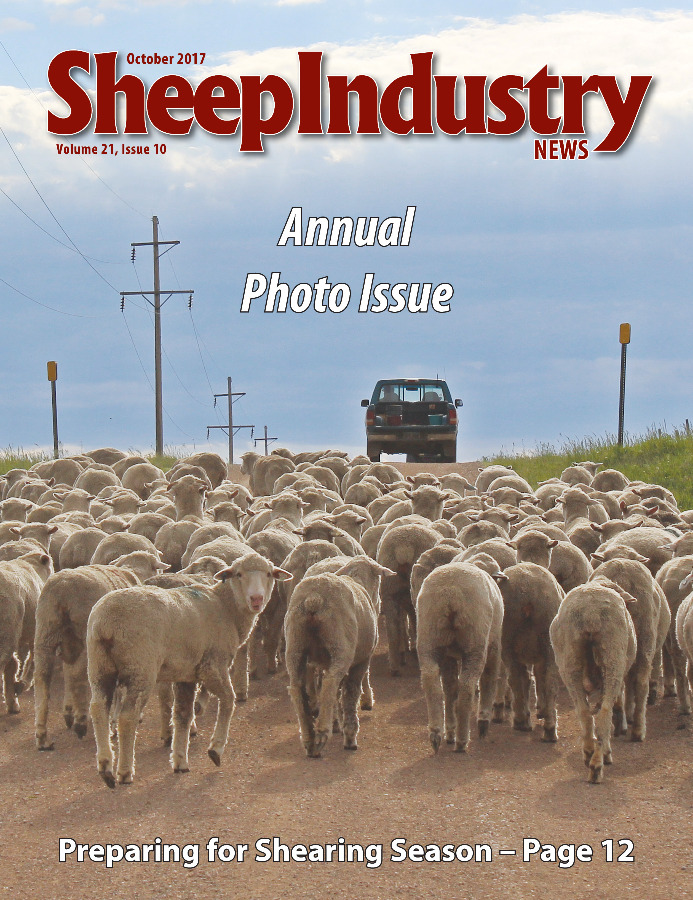To View the October 2017 Digital Issue — Click Here

ASI Councils, Committees are a Great Way to Get Involved
Mike Corn, ASI President
As summer gave way to fall, I went from personally attending state conventions and board meetings to taking part in conference calls with various ASI councils and committees.
I participate in a support role as ASI president while the members conduct business, but I learn from each call whether it is the genetic stakeholders committee or animal health.
Conference calls are an ideal way for these groups to discuss important industry issues outside of the in-person meetings that each council and committee will have during the 2018 Annual Convention, Jan. 31-Feb. 3 in San Antonio. Calls are often necessary this time of year as these groups work to set agendas and invite speakers for the convention.
Taking part in the calls also provides me an inside look at the great work being done by our industry volunteers. Approximately 300 producers, veterinarians, extension agents and industry insiders serve on ASI’s five councils and nine committees. These volunteers are appointed each February with input from the 45 state sheep associations that make up ASI’s membership.
Another benefit to these volunteers is the geographical variety – with every breed and production system represented – helps ensure national policy is indeed national rather than narrowed to what fits one state or region. I was able to track conversations of animal health members this spring on a big issue that did not result in an agreed to action, but everyone left with a much fuller understanding of the topic.
I’d like to take a moment to thank each and every one of these volunteers for the time, energy and knowledge that they bring to the American sheep industry. We have our disagreements at times, but taking on such an important role shows a dedication to the future that you won’t find in other industries today.
Often, the grumbling I hear in our industry comes from those who haven’t taken the time to get involved. Without that involvement, it is impossible to truly understand the complexities of the sheep industry. It’s challenging to know the whole story behind the programs we implement and the policies we endorse when you aren’t in the room to hear the discussion. That’s why I’ve always encouraged people to devote time to the industry on the regional, state or national level. I can guarantee it will be time well spent – both for you and the industry.
Likewise, if you have a question about industry issues, please contact myself, your state association’s board representative or a member of the appropriate council or committee. As the old saying goes, it’s best to get information “straight from the horse’s mouth.” Second- and third-hand information often is inaccurate, yet still ripples through our industry.
I receive calls from producers across the country, some of which are questioning ASI policies. I explain the process the association goes through to develop policy that is approved by the national board. I also encourage folks to review the ASI policy book, as we update it every spring after the Annual Convention.
When you reach the end of this issue, you’ll see Sheep Industry News Editor Kyle Partain’s preview of the upcoming convention in San Antonio. I would certainly encourage everyone in the industry to join us, as this is a great place to not only get involved, but also to develop your own network of industry contacts.
On the legislative front, the wheels of government are starting to gain momentum in Washington, D.C. At the U.S. Department of Agriculture, we’re starting to see nominations for several under secretary positions that are critical to the livestock industry as a whole. We welcome those nominations and subsequent confirmation hearings.
As reported in September, the U.S. House Judicial Committee is making strides on the Agricultural Guestworker Act of 2017. ASI collaborated with the Western Range Association, Mountain Plains Agriculture Service and shearing crews on the legislation. At press time, we have provided input specific to agriculture workers from abroad. I was very pleased to work with our H-2A Committee though August and September and believe we are on the right track to speak with one voice from the sheep industry to best protect our herder program.
My phone line is open, as is the ASI office, so don’t hesitate to ask questions or make requests on sheep topics. We have dozens of regulatory, legislative, sheep health, marketing and production issues in front of the councils and committees at any given time.
If you’re interested in being a part of the solution, express interest to your state sheep association.


